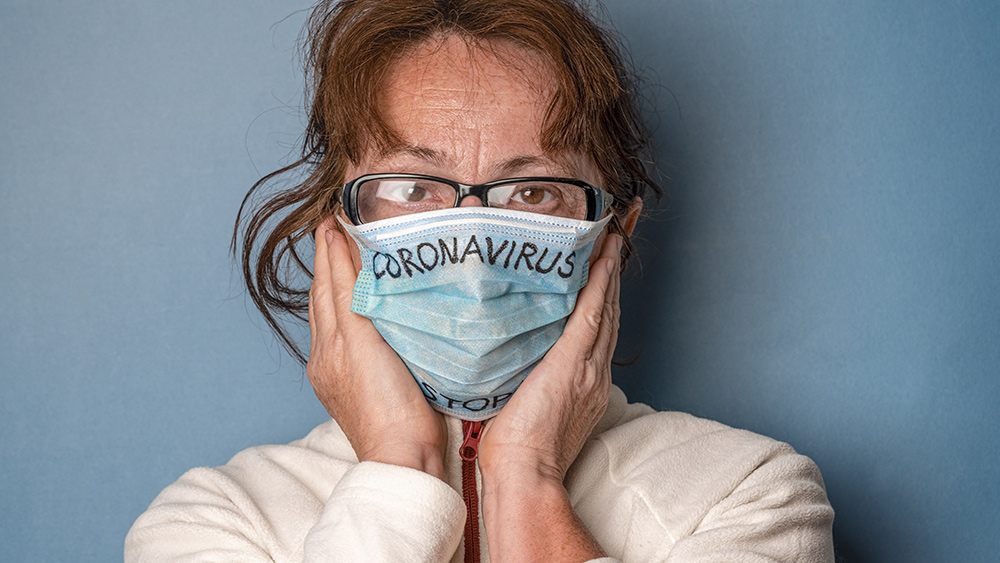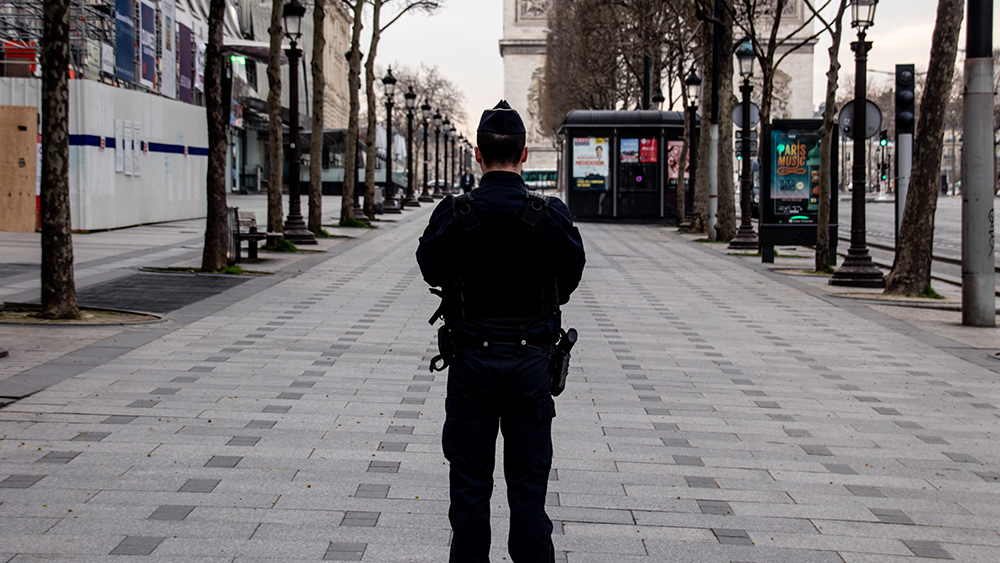China is looking to relax Wuhan lockdown, but doubts remain – is coronavirus really under control in its epicenter?
03/25/2020 / By Franz Walker

As the epicenter of the global coronavirus pandemic, the Chinese city of Wuhan has been locked down since January 23. Now, it seems like the city is finally ready to open up again as officials have stated that the lockdown on Wuhan will be lifted on April 8.
In addition to Wuhan, travel restrictions on the rest of Hubei province, of which the city is the capital of, will also be lifted from midnight on Tuesday — but only for healthy residents. This follows a week where almost no new cases of the disease were reported, save for one last Tuesday.
The lockdown’s easing is the latest sign that China may have successfully fought off the pandemic, thanks to sweeping restrictions on hundreds of millions of people. In other parts of the world, governments are still struggling to deal with the deadly viral outbreak. Despite this, some doubts remain about whether or not China has really stopped the outbreak in Wuhan.
Eased, but not lifted
While the lockdowns on Wuhan and Hubei Province are eased, that doesn’t mean that all travel restrictions have been lifted in China. Other provinces and cities have already made it easier for their citizens to move around, but are still shut off from travelers from elsewhere. China still faces the risk of a second wave of infections should a full resumption of travel occur.
“We need to worry about a second wave of the outbreak once restrictions are limited,” says Malik Peiris, chief of virology at the University of Hong Kong, speaking to the New York Times. “It is important to be aware of it and monitor it — and be prepared to reimpose these measures if they become necessary in the future.”
Sweeping new cases under the rug?
Even as China relaxes its restrictions, some are not convinced that the threat of the coronavirus has passed. After several days without any reports of new infections, officials in Wuhan confirmed that a doctor there had tested positive for the virus.
Meanwhile, other news reports claim that Chinese health officials are still finding – but not publicizing – people with asymptomatic infections. A Caixin report that broke on Tuesday revealed dozens of asymptomatic patients testing positive for the virus in Wuhan, as officials exclude them from official counts. The story’s source, who refused to be named, stated that these asymptomatic patients were found by tracing the contacts of those who had been infected, as well as by screening quarantine workers who are at high risk of infection. They were not found by mass testing.
“It’s not possible at the moment to tell if transmission has stopped,” the person said.
Studies have already shown that 86 percent of people with the virus during the start of the outbreak in China did not show any symptoms of the disease. This has been identified as one of the reasons the virus spread so quickly throughout the country.
“Definitely asymptomatic infections are a potential cause for concern and for transmission,” stated Dr. Peiris. That said, he added that it was “not feasible to test thousands and thousands of people who have absolutely no symptoms to look for evidence of asymptomatic infection.”
In response, Wu Zunyou, a spokesman for China’s Center for Disease Control, played down the risks posed by asymptomatic patients. Wu said on Tuesday that the known cases of asymptomatic infections had all been found among the close contacts of confirmed patients. Wu, however, did state that asymptomatic cases would still be isolated and monitored, even if they weren’t added to the official count.
China’s official tally of confirmed cases only counts patients if they have symptoms and test as positive. This approach is at odds with guidance from the World Health Organization, which states that all people who test positive should be counted as confirmed cases, even if they are asymptomatic.
In fact, U.S. government officials have raised concerns about China’s behavior in regards to reporting the true nature of the outbreak. Secretary of State Mike Pompeo has been very critical of China’s behavior, accusing the ruling Communist Party of hiding information needed to prevent other cases.
“I am concerned that with this cover-up, with this misinformation, the Chinese Communist Party continues to save the world the necessary information to prevent new cases from occurring or something similar,” stated Pompeo.
Pompeo’s statements echo those of Defense Secretary Mark Esper, who said that Chinese defense officials did not respond to offers of assistance as early as January.
“If the Chinese government had been more transparent early on, we’re talking late fall, December at least, we would all — all of us, all the nations of the world — would have been able to get our arms around this and contain it in China where it began and prevent its propagation around the world,” Esper said in an interview with Fox News.
Sources include:
Tagged Under: China, communism, coronavirus, Cover-Up, covid-19, deception, Flu, government, infections, lies, lockdown, mark esper, Mike Pompeo, outbreak, pandemic, priority, propaganda, superbugs, virus, Wuhan




















